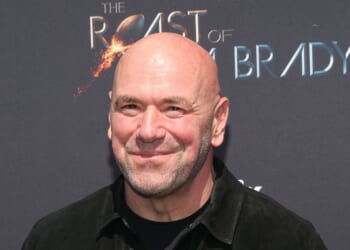
Indiana will ban food stamps from paying for soda and candy, joining West Virginia and Arkansas as states at the forefront of President Trump’s Make America Healthy Again agenda.
Indiana Gov. Mike Braun on Tuesday ordered the sugary drinks and treats removed from the taxpayer-funded Supplemental Nutrition Assistance Program or SNAP, which is commonly called food stamps.
It was among nine executive orders by Mr. Braun, a Republican, to overhaul SNAP benefits, scrutinize food dyes and increase access to locally grown food.
“What do you think about that?” the governor said to applause at an Indianapolis event with Health and Human Services Secretary Robert F. Kennedy Jr. and Dr. Mehmet Oz, the administrator of the Centers for Medicare and Medicaid Services.
Other executive orders will require SNAP beneficiaries to work or be on the path to self-sufficiency. Another one established the Governor’s Fitness Test and School Fitness Month to encourage exercise among schoolchildren.
Also, the state health department will study potentially harmful effects from food dyes and other additives. Another order cuts down on eligibility errors in Medicaid, the federal-state health insurance program for the poor.
Mr. Braun said a recent audit found 28% of Medicaid spending, its largest budget line item, was improper.
Indiana’s push is part of a trend among red states hoping to court the Trump administration and Mr. Kennedy’s MAHA movement. West Virginia moved in March to ban sugary soda from SNAP benefits, and Arkansas took similar steps on Tuesday.
“It is clear that the current system encourages and subsidizes the overconsumption of unhealthy, highly processed and addictive food and beverages,” Arkansas Gov. Sarah Huckabee Sanders, a Republican, said at a press event with U.S. Agriculture Secretary Brooke Rollins.
Mr. Kennedy encouraged other states to join the effort.
“I urge every governor across America to follow your lead by signing similar executive orders in their states to improve nutrition standards in SNAP, increase transparency around food dyes and additives, implement physical fitness tests in schools, expand farm-to-school programs, and embrace the full scope of your transformative health agenda,” Mr. Kennedy said.
Not everyone is happy about the changes.
The National Confectioners Association, in criticizing the Arkansas move, said the rate of candy purchases by SNAP beneficiaries is overstated.
“This policy approach is misguided and not needed when it comes to chocolate and candy,” said Chris Gindlesperger, senior vice president of public affairs and communications at the NCA. “SNAP participants and non-SNAP participants alike understand that chocolate and candy are treats — not meal replacements. In fact, candy purchasing patterns are basically equivalent between SNAP and non-SNAP families — with only about 2% of SNAP purchases being candy.”
In Indianapolis, Mr. Kennedy said “a whole generation of kids is damaged by chronic disease” and bemoaned the food industry’s use of food softeners and other techniques to get people addicted to junk food.
“You could inhale 20 Twinkies and still want more,” he said.
Mr. Kennedy’s focus on diet and eradicating food additives is wildly popular, according to public polling. However, the secretary is facing criticism for his approach to vaccines and massive personnel cuts at HHS.
Earlier this month, a second child died of measles in West Texas, which is experiencing an outbreak.
Mr. Kennedy voiced support for the measles, mumps and rubella (MMR) shot that prevents measles, but some health experts say he has a tendency to send mixed messages about vaccines. He has suggested there could be a link between vaccines and autism, and said the MMR vaccine is “leaky” due to waning protection, countering a message on the Centers for Disease Control Protection website that says the shots offer lifelong protection.
“CDC considers people who received two doses of measles vaccine as children, according to the U.S. vaccination schedule protected for life, and they do not ever need a booster dose,” the page says.












